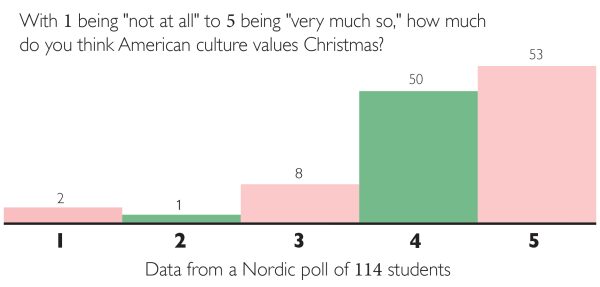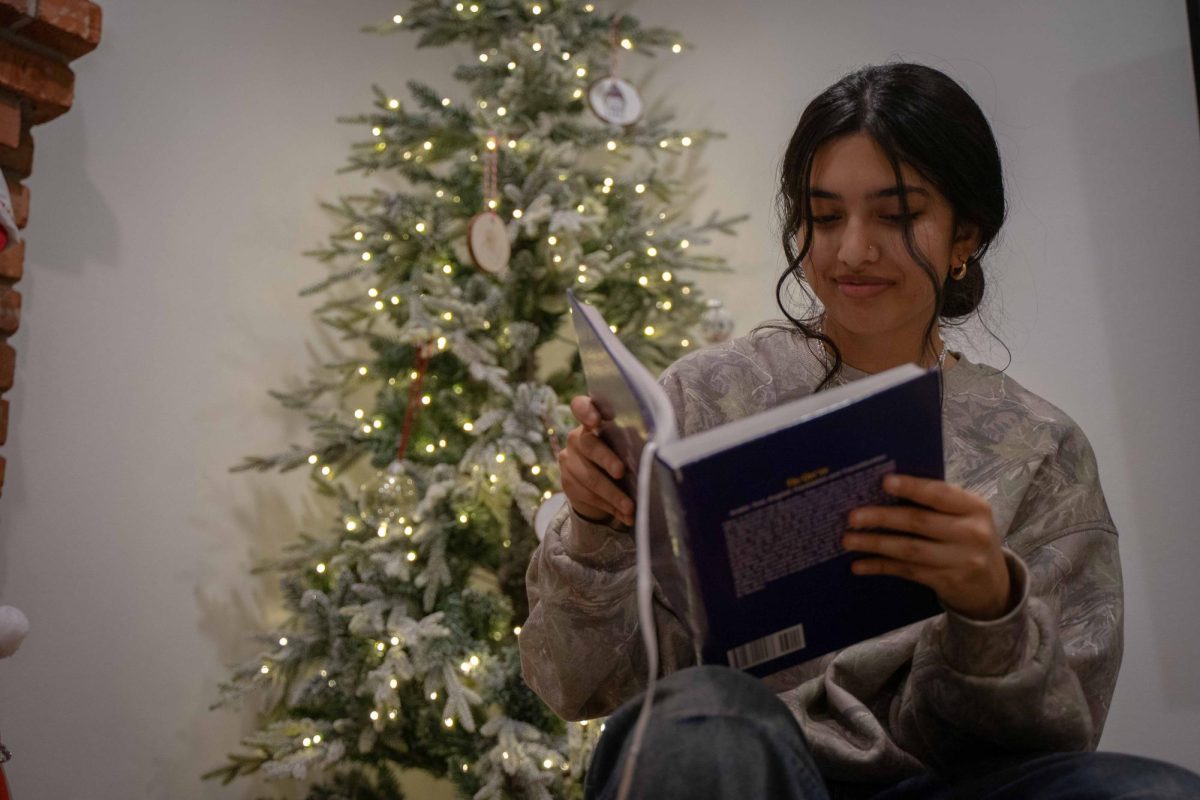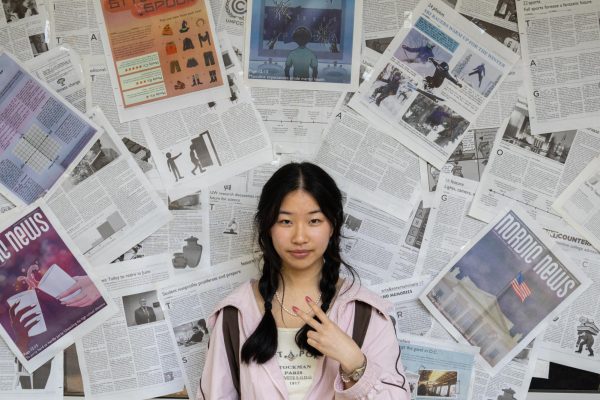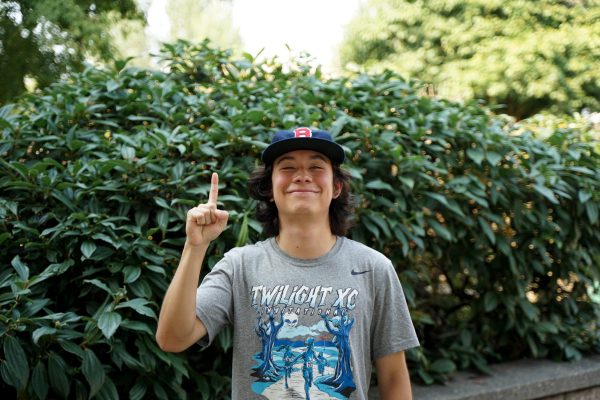The tunes of Christmas music — from Mariah Carey to Michael Bublé — echo through supermarkets while the faint tinkling of jingle bells ring beneath festive lyrics. Homeowners adorn their lawns with colorful lights, inflatable reindeer and snowmen; even the school participates in the festivities and decorations. Teachers often play Christmas music as winter break approaches, and Sherwood’s Forest exhibits arctic animals with Santa Claus hats, massive ornaments and snowflake-adorned trees.
Christmas, a Christian holiday commemorating the birth of Jesus, is a cornerstone of American culture and has transformed into a widely secular holiday. In a Nordic News survey of 114 students, 94.7% celebrate Christmas.
For students like sophomore Hanan Hassen (she/her), who is Muslim, religious beliefs prohibit her from observing Christmas traditions. In Islam, celebrating, or sometimes even acknowledging Christmas, goes against Islamic teachings. Hassen said she experienced pressure from teachers in elementary school to participate in Christmas carols.
“As a child, I was like, ‘How am I going to tell this teacher I don’t want to do it?’ so I just forced myself to participate. I didn’t know I had an option to not do so,” Hassen said.
In the spring, Hassen and her family participate in Eid Al-Fitr, which marks the end of Ramadan – a 30-day period in which Muslims abstain from eating or drinking from dawn to sunset. Although practices vary between families, many, including Hassen’s, buy and gift new clothes, participate in congregational prayer and gather with family members for a feast. During the last month of the Islamic calendar, usually June or July, Muslims celebrate Eid Al-Adha, the festival of sacrifice, which lasts for four days and includes the religious sacrifice of, most commonly, a goat. Hassen said that even though festivals like Eid Al-Fitr and Eid Al-Adha don’t have a “festive” season like Christmas in America, preparing their house and organizing a grand feast brings her and her family the same kind of holiday spirit.
“Even though I don’t have Christmas for that, I have my own holiday that I celebrate for my own religion,” Hassen said.
Junior Emily Pranzini (she/her) said people often associate the month of December with Christmas. However, she said that for those who don’t celebrate Christmas, such as herself, it can feel exclusive.
“As a kid, I didn’t really think anything of it, but I also kind of remember being a little ostracized from it,” Pranzini said. “In preschool, because I was the only Jew in my class, they always made me go up and talk about Hanukkah, but they never made anybody else talk about Christmas because that was the normal.”
Pranzini said that while Christmas is a fun holiday, she would prefer if the month was instead dedicated to winter in general. She said decorations that are more targeted toward winter and less towards Christmas can help students feel more included. She also said language is important when talking about the holiday season.
“It’s so standardized that everybody celebrates Christmas, that they’re just gonna assume that as well,” Pranzini said. “It’s not every single year everyone is like, ‘Merry Christmas, Emily’. And then I’m like, ‘Oh, I actually don’t do Christmas,’ and they’re always like, ‘Oh, sorry,’ and they feel bad. It’s not something you should feel bad about. I just don’t celebrate Christmas.”

This feeling of cultural disconnection also extends to students new to Christmas traditions, which emphasize consumerism, gift-giving and festive displays. Junior Clara Davis (she/her), who moved from Germany earlier this year, follows European customs. In Germany, she celebrates Christmas on Dec. 24. Davis also celebrates Nikolaustag, or St. Nicholas Day, which is commonly observed in Germany, Austria and Switzerland.
“It’s the 6th of December, and we polish our shoes and put them out at night,” Davis said. “They get filled with mandarins, walnuts and chocolates.”
Despite the many different holiday traditions associated with December, Pranzini said that Christmas is still what people think of first.
“I think it’s a fun holiday. For someone who doesn’t celebrate it, I obviously am not gonna find it as fun as everybody else,” Pranzini said. “It’s not very inclusive; you only ever hear Christmas music. I’m not saying that I want them to play ‘Dreidel, Dreidel’, because there’s just no Hanukkah music, but it’s just the fact that Christmas takes over the month of December.”
However, senior Yameena Shameem (she/her) said that while she thinks of Christmas as more of a commercial holiday, she does have traditional ties to it.
“My mom grew up in Norway, and so a lot of Norwegian traditions are around Christmas, and she really wanted to bring that here,” Shameem said. “When I think of Christmas, I really just think of the time in Norway.”
For Pranzini, joining Jewish Student Union led her to become more expressive about her Jewish identity and her perspective on the season.
“You can kind of interpret it your own way. Some people just do it for fun. Some people do it because they’re Christian,” Pranzini said. “The music is so fun and I love going to Snowflake Lane or something, or going ice skating, I consider them just winter activities versus Christmas activities.”












